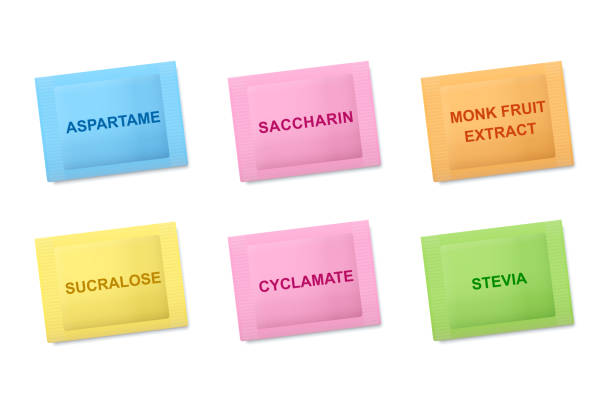
Struggling to shed those pesky pounds and reclaim the slimmer days of your youth? Cutting back on sugar and salt, and still can’t stand the number on the scale?
If you find you’re making all the right moves, but the weight loss just isn’t there, there might be an easy explanation. What’s in your drink? While many people opt for artificial sweeteners over excess sugar, the science isn’t settled.
Turns out, all those non-sugar sweeteners may actually be doing more harm than good. If you’re looking to optimize your weight loss and improve your figure, there are a few things you need to know.
Sugar and Weight Gain
The modern diet is designed for convenience. We have a million and one options at the grocery store. From colorful juices and sodas to processed canned goods, a lot of the stuff out there is unhealthy. And one reason is sugar.
Sugar is added to everything. While it increases the taste, it also increases the amount of weight you put on. These empty calories have little to no nutritional value, making them particularly dangerous when consumed in excess.
Over time, high blood sugar levels can lead to all kinds of health issues, including diabetes, hypertension, and of course, obesity. Sugar even disrupts a critical hormone called leptin, which is especially important for weight management and hunger.
Sugar also affects another hormone called ghrelin, which promotes hunger. The more sugar you consume, the higher your ghrelin levels, and therefore the greater your hunger levels. This is why many people who snack on sugary sweets tend to overeat. Factor in the lack of health benefits in such foods, and it’s easy to see why sugar leads to weight gain.
RELATED: The Truth About Artificial Sweeteners
But Are Artificial Sweeteners Better?
Some people prefer artificial sweeteners like Aspartame over sugar. They may be trying to wean off sugar. Perhaps they simply like the taste. In many cases, people turn to sugar substitutes because they’re worried about the health consequences of prolonged sugar use.
But are artificial sweeteners really any better?
While the research is mixed, recent reviews of the literature are painting a clearer and clearer picture. According to the World Health Organization (WHO), so-called non-sugar sweeteners (NSS) are not recommended for controlling body weight. In fact, the systematic review found that there are no long-term benefits of NSS for cutting body fat, in children or adults.
But it goes further. The WHO also found that prolonged consumption of NSS can lead to health issues just like sugar. The long-term use of sugar substitutes has been linked to higher rates of diabetes, cardiovascular problems, and even early death.
So then what to do?
Simply put, there are no magic solutions. The best way to lose weight is to reduce the overall use of both sugar and non-sugar. Rather than ingest empty calories from added sugars, it’s best to obtain natural sugars from fruits. In doing this, you also enjoy the benefits of those vitamin-rich foods!
So, next time you grab a “Diet” soda with no sugar or consume a sugary pastry or juice, just remember: the key is moderation. If you’ve been consuming sugars and sugar substitutes for years, try to slowly reduce your intake.
Cutting out sugar and sugar substitutes immediately comes with side effects. After all, sugar affects our brains the same way that drugs do. People report feelings of withdrawal, such as cravings, fatigue, nausea, and inability to concentrate. Problems sleeping are also common among people reducing sugar or sugar substitutes.
But it’s worth it. Your body and brain will thank you immensely! You’ll be reducing your dependence, improving your general health, and soon start feeling better than ever. Not to mention, your figure will improve. If you combine your reduction of sugar and sugar substitutes with healthier eating and exercise, weight loss is almost inevitable.
It’s not easy, and all of our bodies and metabolisms are different, but with a strong mindset, your life can vastly improve. And nothing’s sweeter than that!








